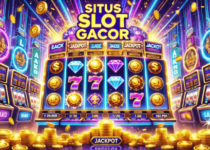The Legacy of Ludo – Exploring Its Cultural and Historical Significance
Ludo, a game cherished across generations, is more than just a source of entertainment; it is a cultural and historical artefact that bridges the past with the present. From its ancient origins to its modern-day adaptations, Ludo’s journey reflects a rich tapestry of tradition, strategy, and social interaction. In this blog, we delve into the cultural and historical significance of Ludo, exploring how this timeless game has left its mark on societies around the world.
The Ancient Roots of Ludo
1. The Origins of Pachisi
Ludo’s roots can be traced back to Pachisi, an ancient Indian game that dates as far back as the 6th century AD. Known as the “Royal Game of India,” Pachisi was played on a cross-shaped board and was a favourite pastime of Indian royalty. The game’s design and rules were intricate, involving six or seven dice-like objects and tokens that raced around the board.
Cultural Significance:
– Royal Endorsement: Pachisi was not just a game but a symbol of royal prestige and intellectual prowess. It was often played during important events and royal gatherings.
– Artistic Depictions: The game is depicted in various historical artworks and artefacts, highlighting its cultural importance in ancient Indian society.
2. The Evolution of Chaupar
Chaupar, a variant of Pachisi, emerged around the 16th century and introduced modifications in gameplay and board design. Chaupar continued to be played by the Indian elite and influenced the development of later versions of the game.
The Western Adaptation: Ludo’s Global Journey
1. The Introduction to Europe
In the late 19th century, British colonialists introduced Pachisi to Europe. Alfred Collier’s patent of a simplified version of Pachisi, which he named “Ludo,” marked the beginning of the game’s transformation for Western audiences. This adaptation streamlined the rules and design, making Ludo more accessible to a broader audience.
Cultural Impact:
– Family Entertainment: Ludo quickly became popular as a family game in Europe and North America, reflecting its appeal to a wide range of age groups.
– Cultural Integration: The game’s adaptation to Western tastes and its subsequent popularity in various countries highlight its ability to transcend cultural boundaries.
2. The Popularization of Ludo
The simplicity of Ludo’s rules and its strategic depth contributed to its widespread adoption. The game became a staple in homes across the world and was featured in numerous toy catalogues and stores.
Historical Significance:
– Global Reach: Ludo’s success in various countries underscores its universal appeal and its role in the evolution of board games.
– Influence on Other Games: Ludo’s design and mechanics influenced the development of other board games, contributing to its legacy in the gaming industry.
The Modern Era: Ludo in the Digital Age
1. The Rise of Online Platforms
The digital revolution has introduced Ludo as one of the best money-earning games to a new generation of players through online platforms and mobile apps. Games like Ludo Empire and Ludo Star have made it possible for players to enjoy Ludo from anywhere in the world, offering new features and interactive elements.
Cultural and Social Impact:
– Global Connectivity: Online Ludo has connected players from diverse backgrounds, fostering a global gaming community.
– Cultural Exchange: The digital adaptation of Ludo has facilitated cultural exchange, allowing players to experience different variations and strategies from around the world.
2. The Continued Popularity of Ludo
Ludo’s ability to adapt to modern technology while retaining its core elements demonstrates its enduring appeal. The game’s transition to digital platforms as money earning games reflects its continued relevance and growth in contemporary entertainment.
Significance for Modern Society:
– Accessible Entertainment: Digital Ludo provides a convenient and engaging form of entertainment, accessible to players of all ages and from various locations.
The Legacy of Ludo: A Cultural Treasure
Ludo’s journey from ancient India to the digital world is a testament to its lasting cultural and historical significance. The game’s ability to evolve while preserving its core essence highlights its universal appeal and enduring charm.
Reflections on Ludo’s Legacy:
– Cultural Heritage: Ludo serves as a bridge between ancient traditions and modern entertainment, connecting players to historical and cultural practices.
– Enduring Popularity: The game’s continued success across different eras and cultures underscores its timeless appeal and its role in shaping the world of board games.
Conclusion
Ludo’s legacy is a rich tapestry woven from ancient history, cultural significance, and modern innovation. From its royal origins in India to its global presence in the digital age, Ludo has remained a beloved game that brings people together and offers joy and strategy. Its journey reflects the enduring power of games to connect people across generations and cultures, and its continued popularity is a testament to its timeless appeal.
So, the next time you roll the dice and move your token, remember the rich history that has shaped Ludo into the global phenomenon it is today. Whether played on a physical board or on a digital screen, Ludo remains a cherished part of our cultural heritage and a symbol of the universal joy of gaming.



